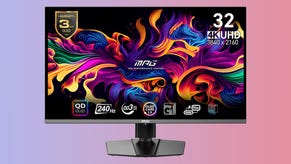Core i9 9900KS: the Digital Foundry verdict
A limited-edition processor for good reason.
With all our tests complete, it's time to consider where Intel's limited edition processor ends up. The 9900KS unsurprisingly clinches the top slot on the hierarchy of the best gaming CPUs, with its faster all-core frequency and typically lower voltage ensuring better sustained performance than most 9900K models - not to mention the rest of the Intel and AMD ecosystem. However, the advantage that the 9900KS enjoys over the 9900K is relatively modest, making it hard to justify the KS model's additional expense. Similarly, the 9700K performs nearly as well as the 9900K in most games we tested, and even comes ahead in a couple of titles that don't benefit from hyper-threading.
That means our recommendations are largely unchanged: the $472 9900K is a great choice if you first want top-notch gaming performance at lower resolutions and secondarily want to make use of its higher thread count in content creation tasks. The $230 9600K and $360 9700K are the better value for money picks is content creation is off the table, offering similar gaming performance to the high-end Intel options at a substantially lower cost. The $600 9900KS is legitimately faster than its peers, but only makes sense for deep-pocketed gamers that want the absolute best gaming performance possible.
Meanwhile, AMD's third-gen Ryzen processors also deserve a look-in, particularly the upcoming $750 3950X and existing $530 3900X or $325 3700X chips. Their performance in most multi-threaded content creation tasks is exceptional, typically leading their Intel equivalents by double digit percentages, while also consuming less power. The AMD ecosystem is also cheaper to get into, with most Ryzen third-gen processors coming with perfectly capable Wraith Prism air coolers, while most Intel systems will require a third-party AiO or air cooler. AMD's mid-range motherboards are also notable for offering memory overclocking, something that is limited on Intel's affordable motherboards. The only significant downside for going with Ryzen is that gaming performance in some titles, particularly at 1080p, is noticeably worse than Intel's offering.
So the 9900KS doesn't shift the landscape - but then again, that wasn't the point. This limited edition processor is intended for the enthusiasts and overclockers out there who want bleeding edge performance without moving to (an expensive) HEDT platform, and in that it succeeds.
Intel Core i9 9900KS analysis
- Introduction, hardware breakdown, test system
- Gaming benchmarks: Assassin's Creed Odyssey, Battlefield 5, Far Cry 5
- Gaming benchmarks: Crysis 3, Metro Exodus, Kingdom Come Deliverance, The Witcher 3
- Gaming benchmarks: Core vs Ryzen - memory bandwidth analysis
- Intel Core i9 9900KS: the Digital Foundry verdict [This Page]








